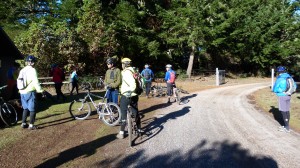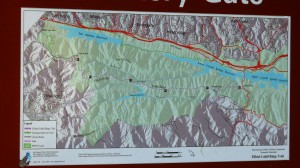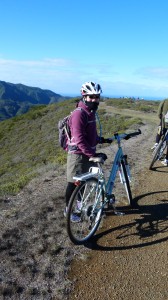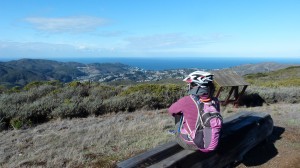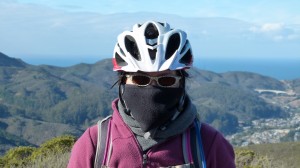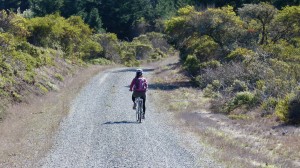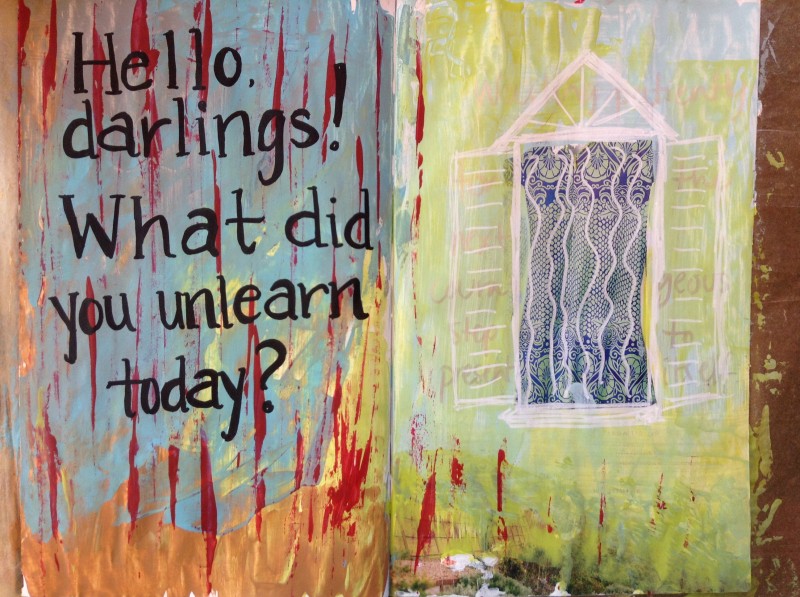 When I was a senior in high school applying to college, I remember one university had as its essay question, "What was your biggest failure and what did you learn from it?". I remember considering not applying to that school because I couldn't think of a failure to write about.
When I was a senior in high school applying to college, I remember one university had as its essay question, "What was your biggest failure and what did you learn from it?". I remember considering not applying to that school because I couldn't think of a failure to write about.
At the time, I was on the receiving end of a lot of attention and praise for never having failed (publicly at least). But now as an adult, I know the trap of living a life based on avoidance of failure. It's no success to have reached all the goals that have been set for you, to have checked all the boxes other people have laid out as important for you, and then to look in the mirror and not recognize yourself. Or to have your body screaming in pain or exhaustion.
Having been there and done that, I have rediscovered the vital importance of failure. Not "achieving" failure as an identity, but being willing to fail. I gave a workshop on Friday to a group of engineers, coaches, consultants, startup founders, and other change agents interested in how groups of people grow and learn. It was based entirely around sound, voice, and music improvisation - in other words, the most common fears of about ninety-nine percent of the population.
The name of the workshop was, "Play the Wrong Note: Daring Adventures in Learning, Failure, and Creativity". The title actually refers to a specific moment in my life when everything changed for me. Those four words - "Play the wrong note" - were the four most compassionate words ever spoken to me by a teacher. No one in a position of authority had ever said, "Lisa, I want to see you break the rules. And I'll help you." It turned out to be the most loving instructions I ever received, and the framework for an entire body of work.
It was about three months in to my sound healing training program. A weekend workshop dedicated to the art of improvisation. I thought I could just observe and let the others do this improvisation thing, which was clearly for "those people" but not me. So I hid behind the teacher with my violin tucked under my arm, hoping he would not see me or ask me to participate in this bluesy, jazzy jam that was happening all around me.
And, of course, at that very moment, he turned around and pointed right at me. "You! Solo!" he said.
I had no idea what to play. I wasn't into blues or jazz and had no reference point for what sounds to make. He could sense that I needed help so he said, "Play the wrong note."
My facial expression must have communicated the feeling I had, which was, "OK. But...which one?". There were an infinite number of wrong notes I could play. How would I know which one was right?
He smiled and took my finger in his hand, and moved it to a random place on the fingerboard of my violin. "Play that," he said gently.
I heard his instructions, but when I tried to play, my bow arm literally would not move. I was so hard-wired to play only the right notes - after daily practicing from age four - that my entire body would not allow me to play any wrong ones.
It was the perfect timing for me. I was ready. I had had a lifetime of good training, practice, and mastery. I was wired for success. But I had no wiring for freedom, fun, or failure. And in that moment, standing there, stranded, in the middle of a room with forty or so people making sounds, having a great time, and waiting for me to solo, I got it.
I could continue to avoid failure, or I could choose to grow into the unknown.
Later that day, in the same workshop, my violin case fell off its chair and onto the floor.
I took it as a sign and stopped avoiding the failures that were wanting to happen for me. I closed my violin school a little over a month later. I started practicing - first in the privacy of my own home, and using my voice, not my violin - making sounds that were all "wrong" to my trained ears. I started PLAYING again. Something I had not done in a long time, and maybe never on my violin.
The adventure that followed was a list of things I could never have planned for my life. I started playing only improvised music, in public, on a stage. I discovered hiking and backpacking. I went to the top of Half Dome and the bottom of the Grand Canyon. I started working at REI - the retail job I was never allowed to have as a teenager because I could earn more money teaching violin or staying home to practice. I won a gig as a gear tester and reporter for Backpacker Magazine, including a free trip to the Outdoor Retailer show in Salt Lake City. I discovered Thai massage and Breema bodywork, which led to traveling to three countries I would never have dreamed of visiting before - Bali, Thailand and Laos. And through my practice of these forms of bodywork, I traded massages for studio days with a couple of artist friends. And I discovered that I could play with paint. Which led to a daily art-making habit. Which has (so far, in the year or so that I've been doing it) led to a juried show, a new blog, and a whole lotta new art supplies in my house.
I could not have written these down on a bucket list because I would never have let my imagination run that wild. Until I was willing to Play The Wrong Note.
And not just once, in a workshop. It was about making a decision to bring the learning from that moment back to my daily life. To find ways to practice that willingness every time the opportunity came up.
It started with music. Being willing to play the wrong note in my personal comfort zone. And then it expanded. Not with planning but as a natural consequence of becoming familiar with the willingness to be "wrong".
So this is my soapbox.
Risk taking is necessary. Being open and willing to fail is necessary. Not knowing is necessary. And these skills are not taught in school. They are not the skills that get you straight A's. They are not the skills that make you look "smart". They are not the skills that earn you the proud distinction of being a Good Daughter (or Wife or Mother). They are not the skills that you use to fill out a college or medical school application. They are often not the stuff of polite cocktail party conversation.
They are the skills of the maverick. The rebel. The free thinker. The one who creates.
So no matter how long ago it was that you experienced your last failure - whether it was just this morning or decades ago or not at all - it is never too late to dive right in. Start practicing the F word.
Take it from a straight A student. Me.
Curious about my "Play The Wrong Note" workshop? Read this blog post or listen to the Creative Conversation we had yesterday about it.
And if you're ready to start practicing Fun, Freedom, and Failure with writing as improvisation, check out my brand new coaching program here.
Wishing You The Fun and Freedom of Being Willing to Fail,
Lisa
